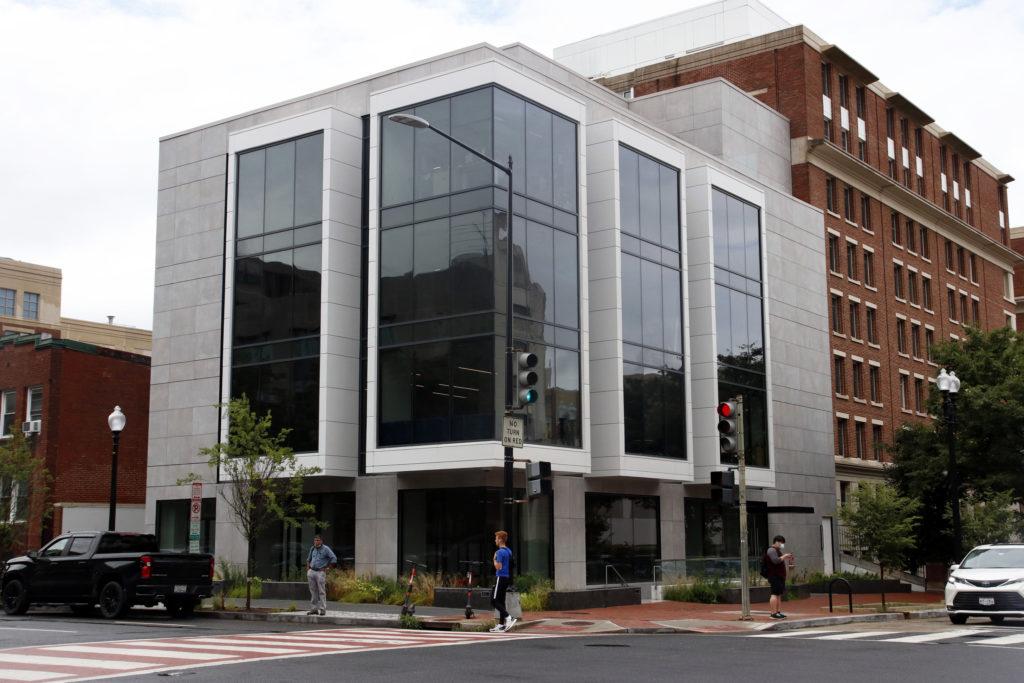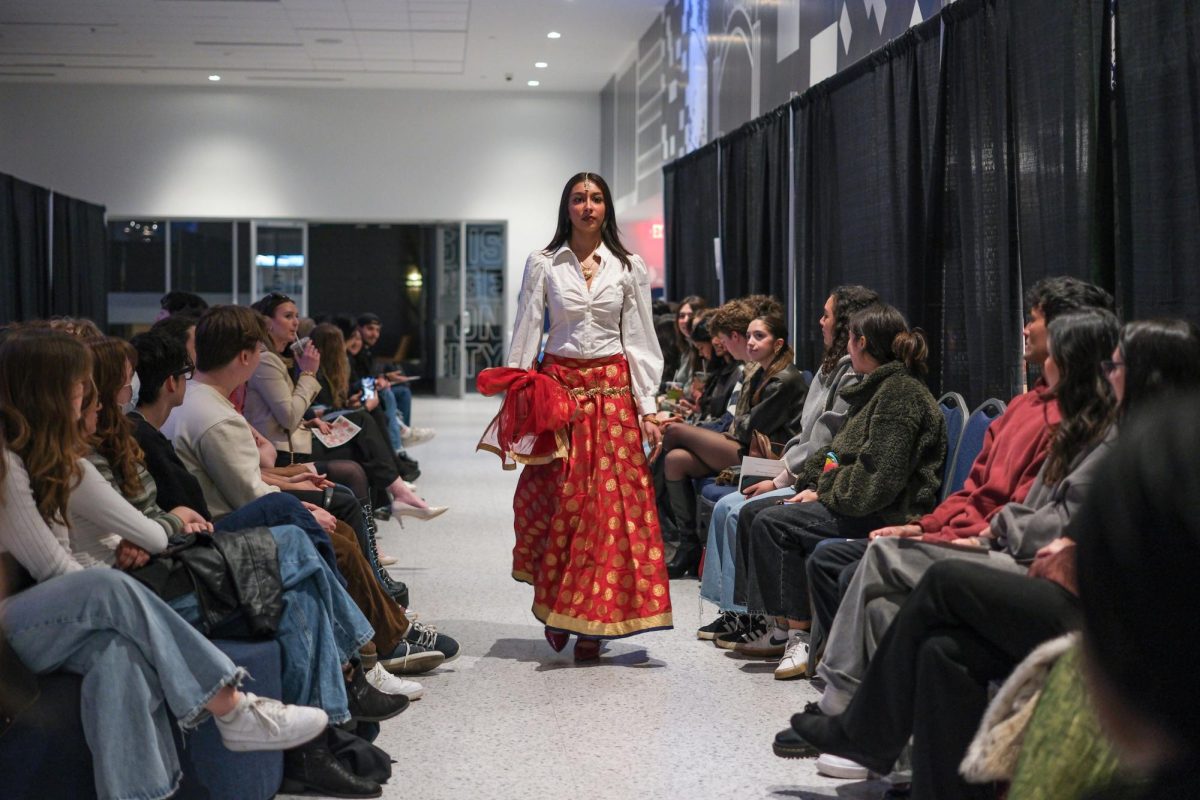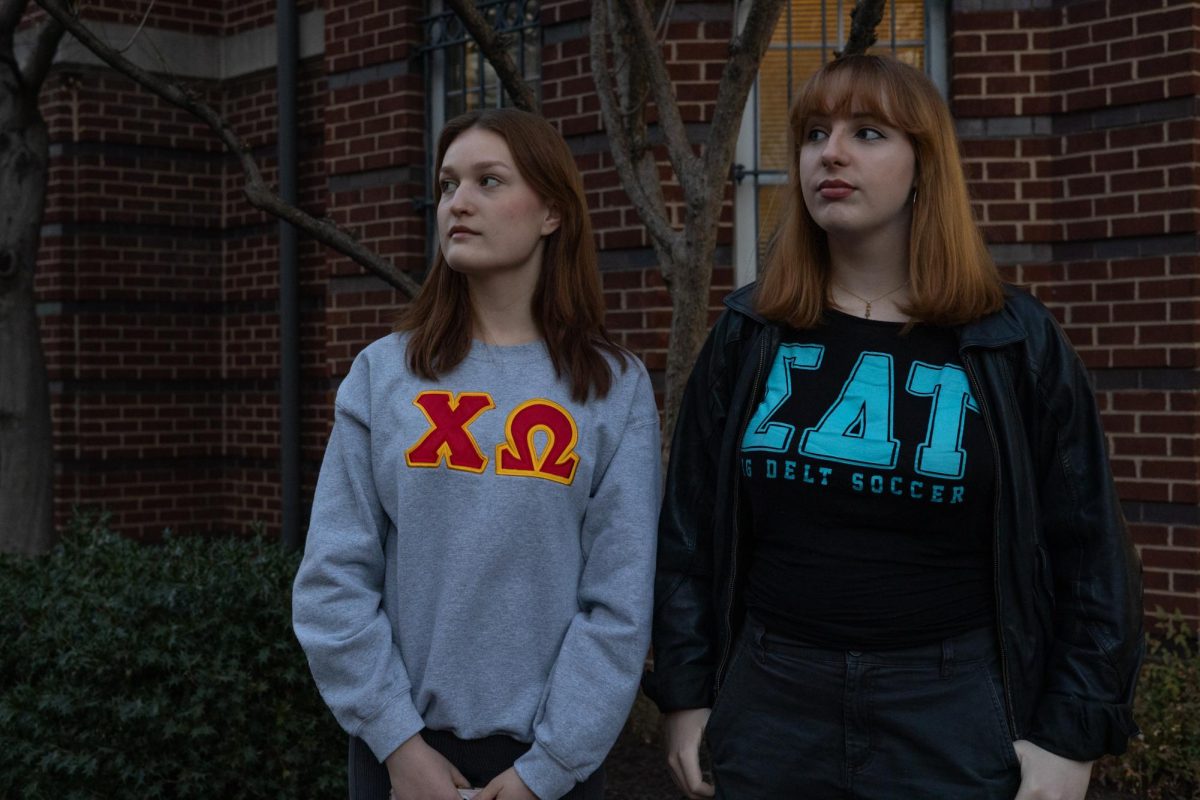Junior Dilshad Dinshaw peers into her computer sitting on the floor of the dance studio in the District House basement every Friday waiting for her class of local elementary school students to log on for their weekly dance lessons.
Dinshaw is the director of Creative Movement with Balance, the volunteer program that offers free dance lessons to elementary school students in the District, through GW Balance, a student dance organization. She said teaching dance, working with children and keeping them engaged over a screen has been challenging during the spread of the Omicron variant.
It definitely has been more challenging during COVID-19 to run the organization,” she said in an email. “Trying to keep in contact with elementary students, parents and staff became extremely difficult without any in-person interaction. Students struggled to pay attention to the class over Zoom, and it was harder to attract as many GW Balance members to help teach the classes.”
Dinshaw is one of half a dozen students who said they have struggled to stay connected to the District community through volunteer work this year after much of their previous work relied on in-person interactions and face-to-face connections. Members of GW service organizations said they are still attempting to complete in-person service opportunities but have shifted to a hybrid method of volunteering this year in an attempt to continue to serve the District community.
Amy Cohen, the executive director of the Nashman Center for Civic Engagement and Public Service, said students who sign up to volunteer for one day at the center had to pivot to virtual service opportunities, and the Nashman Center established partnerships with the National Archives, the Smithsonian Transcription Center, where volunteers transcribe historical documents and biodiversity data, and Free Minds Book Club and Writing Workshop, an organization that shares poetry and fosters a sense of community among incarcerated individuals.
Many other partners have shifted to online opportunities as well,” she said in an email. “We asked the community organizations that we work with how GW could be of assistance in helping them meet their mission.”
She said the Nashman Center provided material needs like coats and gloves for the first time for families who went without work. She said many volunteer courses offered this summer and fall pivoted to more capacity-building work, including support for research, evaluation and new program guides or volunteer management.
All of the organizations we work with follow the [Centers for Disease Control and Prevention] guidelines and D.C. health guidelines to limit the spread of coronavirus,” she said. “Many childcare centers and nonprofits have limited the number of students in the classroom at any one time. We at the Nashman Center follow GW and D.C. guidance as well.”
Senior Leila Wynnyckyj – the president of GW’s chapter of Alpha Phi Omega, a national service fraternity – said the organization can still complete in-person service opportunities despite the recent spread of the Omicron variant, including trips to Charlie’s Place, a shelter for people experiencing homelessness located in Kalorama Heights.
We go there almost every day of the week and help them with breakfast, lunch-packing and stuff like that,” she said. “We’ve definitely maintained our partnership over COVID as well.”
She said the organization has also turned to virtual volunteer opportunities, like transcribing historical documents for the National Archives and the Smithsonian Institution. She said the chapter also worked with Free Minds Book Club and Writing Workshop this year.
Maddie Billet, a sophomore majoring in political science and environmental studies, said she volunteers with GW Compost and finds community service work through her service sorority, Epsilon Sigma Alpha. She said her sorority reduced its required service hours from 12 to nine hours a week because of the lack of volunteer opportunities available due to the pandemic.
We usually have a lot of in-person service opportunities, but the community service chair just cannot find many that we’re still doing in person given coronavirus,” she said.
She said the organization stopped volunteering with St. Mary’s Court, a safe housing option for the elderly and people with disabilities in Foggy Bottom, because of the population that faces a high risk for developing severe coronavirus symptoms.
I think with the recent surge hopefully dying down things will be open back up,” she said. “But I particularly like working with the St. Mary’s elderly home, and it really sucks that we can’t go there in person.”
She said the organization has begun to organize campus cleanups, where volunteers pick up trash throughout campus during the semester to try to offer some form of in-person volunteer work that does not involve person-to-person interaction.
Anna D’Amico, a senior and a pledge educator for Alpha Phi Omega, said the organization removed restrictions limiting students’ service to opportunities affiliated with the chapter so they could complete any service independently. She said the move was made because online service has been difficult for students to connect with the local community.
We really wanted to make sure now that we had bodies back in the District that we were going to be helping them out in their soup kitchen and their clothing closet and all that kind of stuff,” she said.
D’Amico said now that students are back in D.C., the organization is attempting to offer as many in-person volunteer opportunities as possible.
We also tried to be cognizant of the fact that not everybody was comfortable with in-person service but that at the end of the day, we had a responsibility to serve our community in the most full capacity,” she said.








